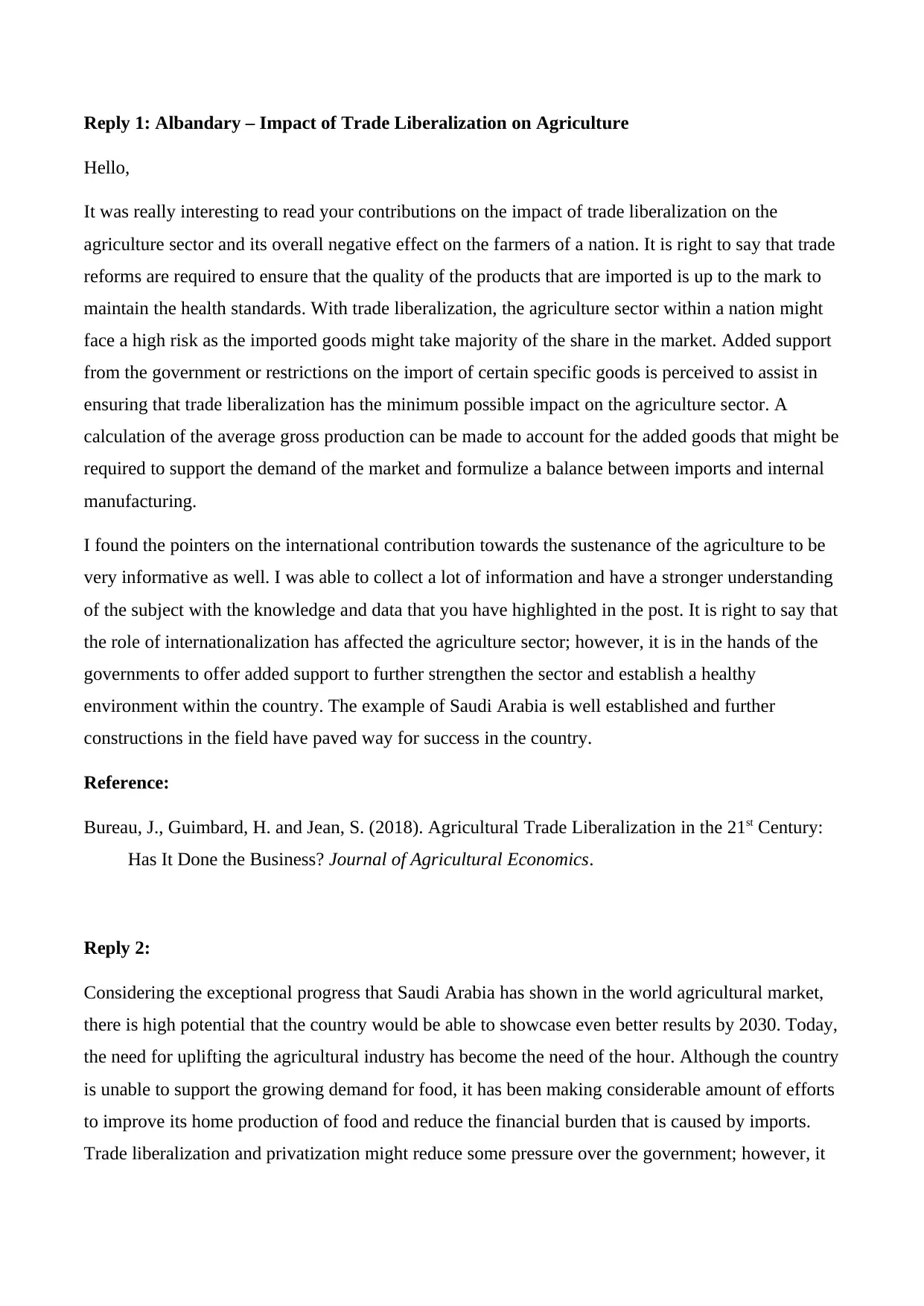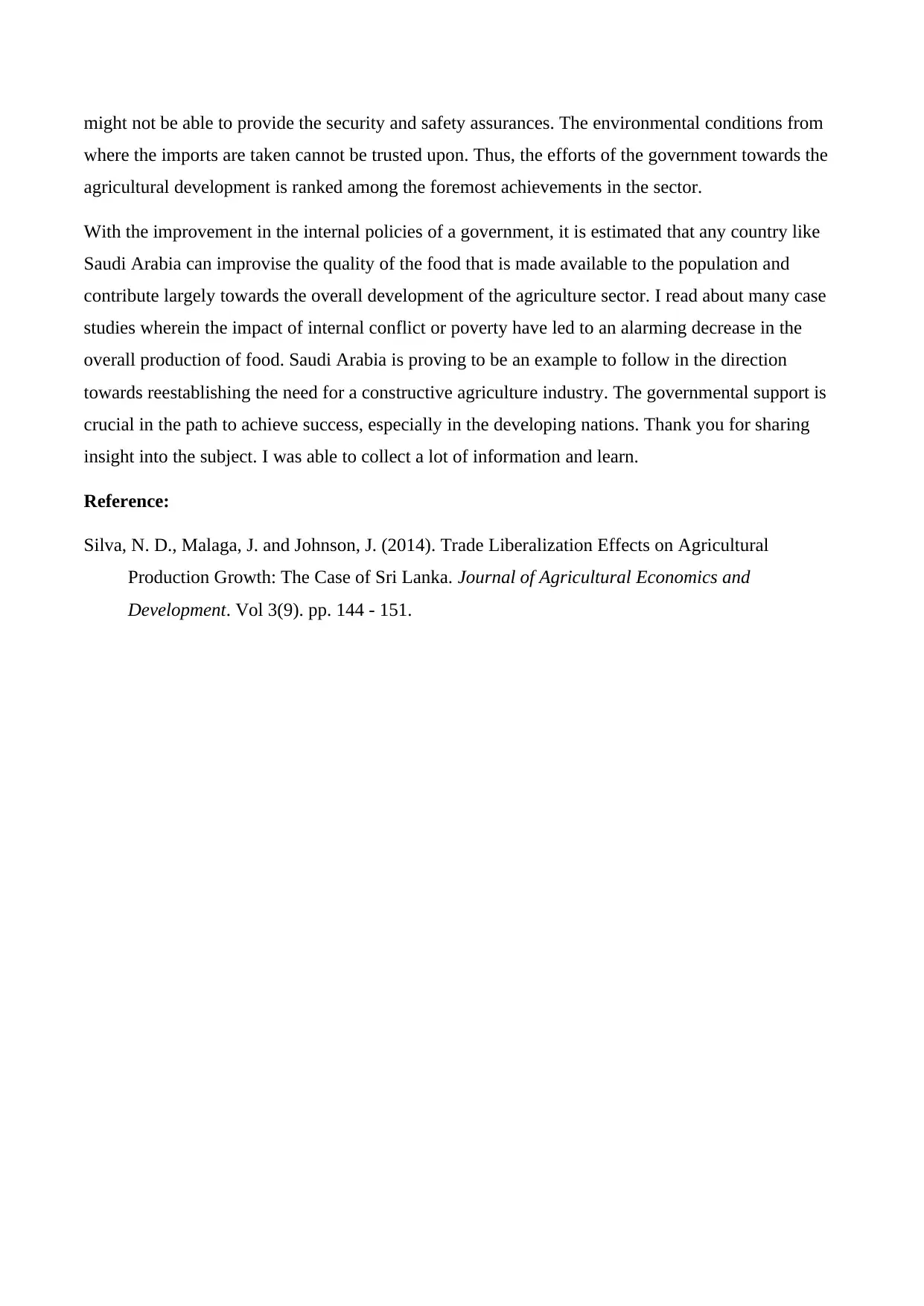Trade Liberalization: Analyzing Effects on the Agricultural Sector
VerifiedAdded on 2022/10/06
|2
|670
|18
Discussion Board Post
AI Summary
This assignment is a discussion post analyzing the impact of trade liberalization on the agricultural sector. The post examines the arguments for and against free trade, including the effects of tariffs, market regulations, and globalization. The discussion includes viewpoints on the potential negative effects on farmers due to competition from imported goods and the importance of government support. It also considers the role of international contributions and how countries like Saudi Arabia are adapting to trade liberalization. The provided responses highlight the need for quality control of imported goods and the potential benefits of privatization, while also acknowledging potential risks. The discussion references several sources that provide further insights into the topic.
1 out of 2








![[object Object]](/_next/static/media/star-bottom.7253800d.svg)